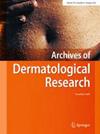摘要
慢性手部湿疹(CHE)严重影响患者的生活质量,而且治疗难度很大,尤其是外用类固醇难治性湿疹。杜匹鲁单抗是一种靶向白细胞介素-4受体α的单克隆抗体,已证明对中重度特应性皮炎和其他各种2型炎症具有疗效。本系统综述评估了杜匹单抗治疗CHE的有效性和安全性。我们对 Ovid MEDLINE 和 Embase 数据库从开始到 2024 年 3 月进行了全面检索,共发现了 20 项研究,包括随机对照试验 (RCT)、回顾性和前瞻性研究以及病例报告,涉及 366 名 12 岁及以上接受过杜比单抗治疗的 CHE 患者。疗效通过手部湿疹严重程度指数(HECSI)、医生总体评估(PGA)和皮肤科生活质量指数(DQLI)进行评估,安全性则通过报告的不良事件(AE)进行评估。杜匹鲁单抗能持续改善CHE症状,40.3%的研究参与者在第16周时达到了手足研究者全球评估0/1,90%的治疗组达到了HECSI-75。不同亚型的CHE症状均有改善,包括特应性、刺激性接触性和过敏性接触性皮炎。杜比鲁单抗的耐受性普遍良好,因结膜炎等轻微AE导致的停药率为1.64%。虽然在研究性试验中报告了疱疹,但在病例研究中未报告任何 AE。杜比单抗似乎是治疗CHE的一种很有前景的选择,它具有显著的疗效和良好的安全性。不过,还需要进一步研究其长期有效性、最佳剂量策略和成本效益。Chronic hand eczema (CHE) significantly impacts patients’ quality of life and remains challenging to manage, especially in topical steroid-refractory cases. Dupilumab, a monoclonal antibody that targets the interleukin-4 receptor alpha, has demonstrated efficacy in moderate-to-severe atopic dermatitis and various other type 2 inflammatory conditions. This systematic review evaluates the effectiveness and safety of dupilumab in the treatment of CHE. A comprehensive search was performed of the Ovid MEDLINE and Embase databases from their inception until March 2024, identifying 20 studies, including randomized controlled trials (RCTs), retrospective and prospective studies, and case reports, involving 366 participants aged 12 years and older with CHE treated with dupilumab. Effectiveness was assessed using the Hand Eczema Severity Index (HECSI), Physician Global Assessment (PGA), and Dermatology Quality of Life Index (DQLI), while safety was evaluated through reported adverse events (AE). Dupilumab consistently improved CHE symptoms, with 40.3% of RCT participants achieving Hand and Foot Investigator’s Global Assessment 0/1 by week 16, and 90% achieving HECSI-75 among treated groups. Improvements were observed across various CHE subtypes, including atopic, irritant contact, and allergic contact dermatitis. Dupilumab was generally well-tolerated, with a 1.64% discontinuation rate due to minor AE, such as conjunctivitis. While herpes was reported in RCTs, no AE were reported in case studies. Dupilumab appears to be a promising treatment option for CHE, offering significant efficacy and a favorable safety profile. However, further research is needed to explore its long-term effectiveness, optimal dosing strategies, and cost-effectiveness.

 求助内容:
求助内容: 应助结果提醒方式:
应助结果提醒方式:


